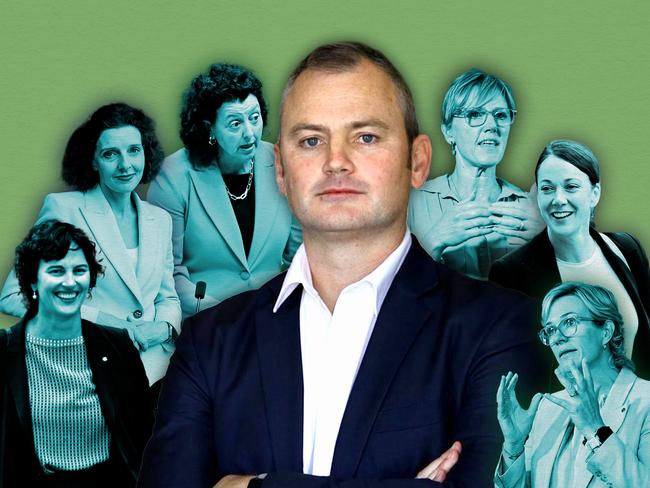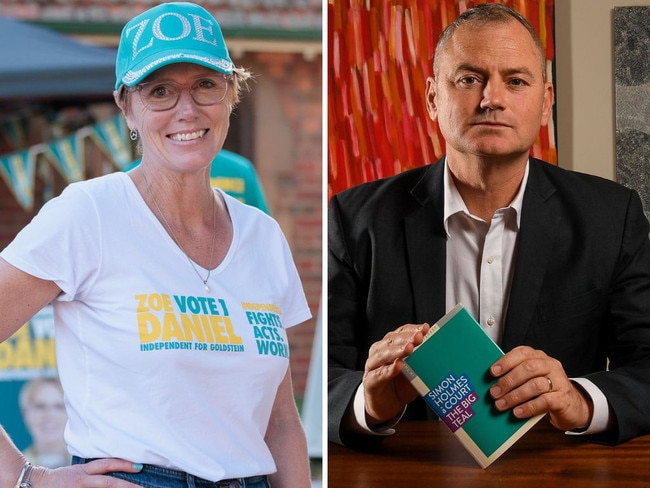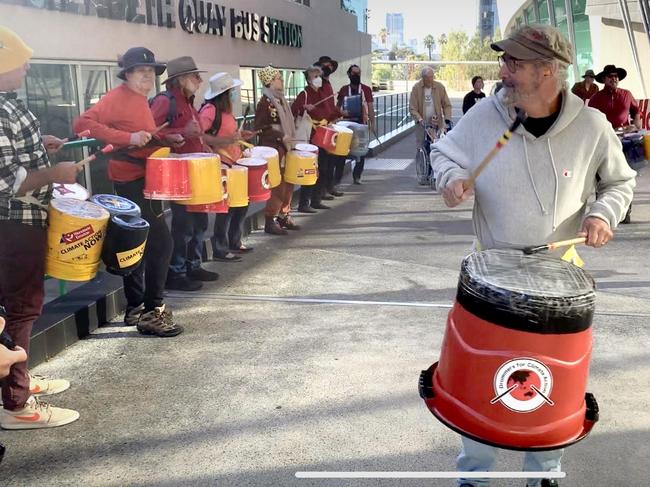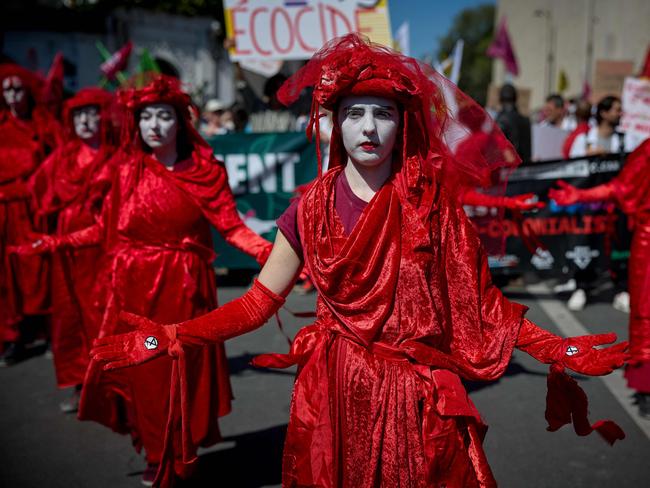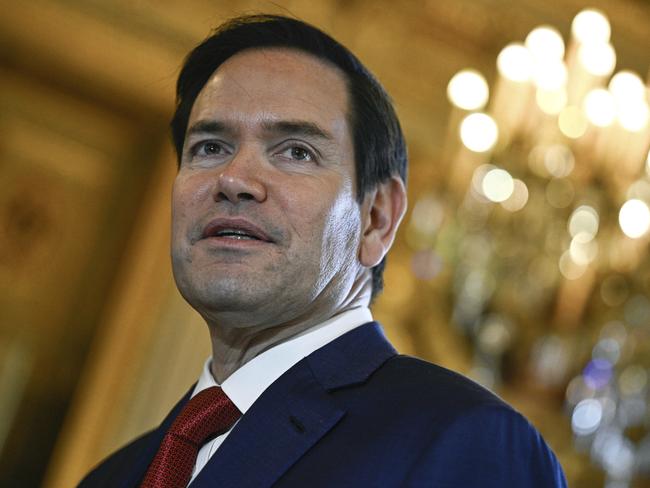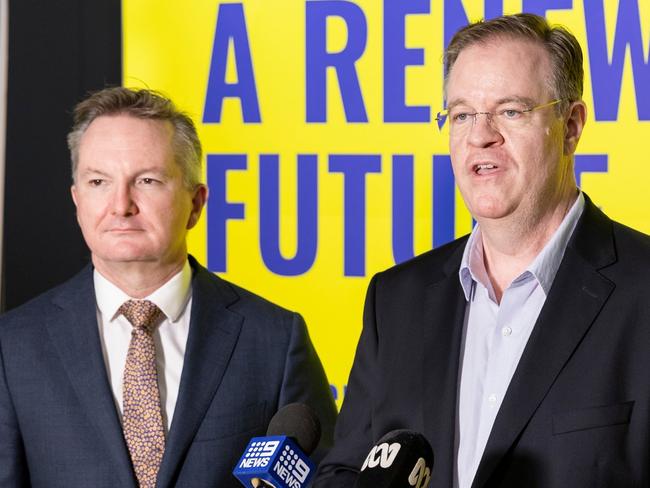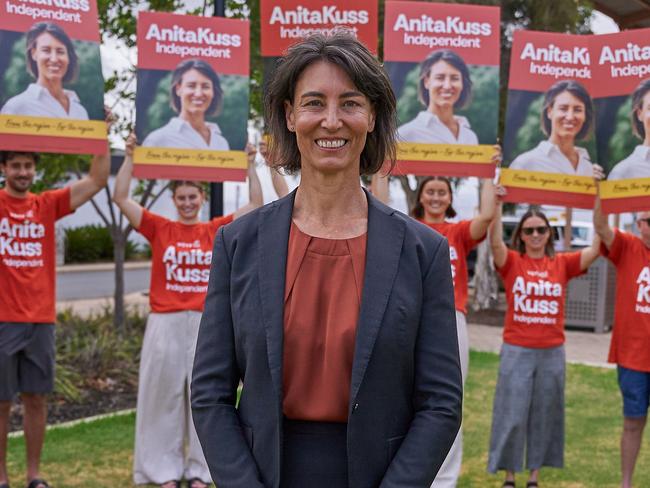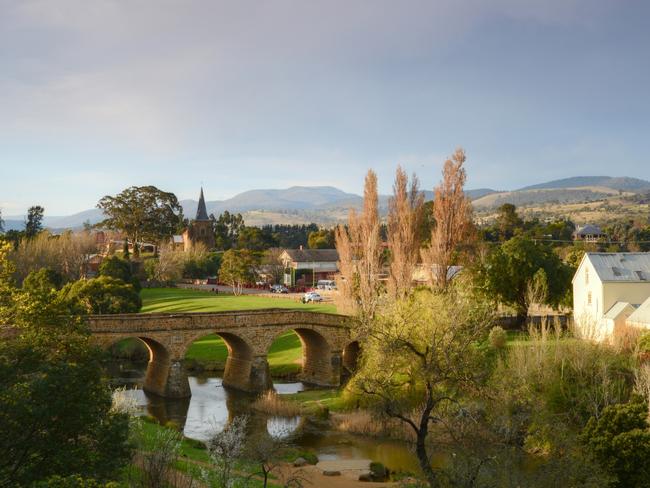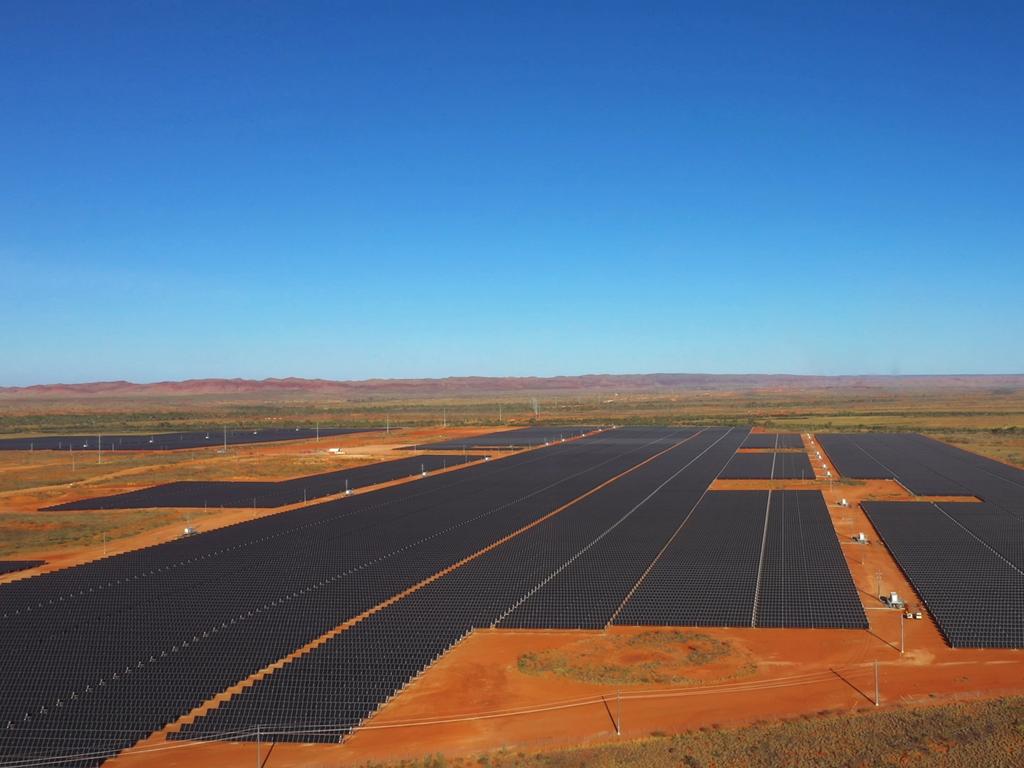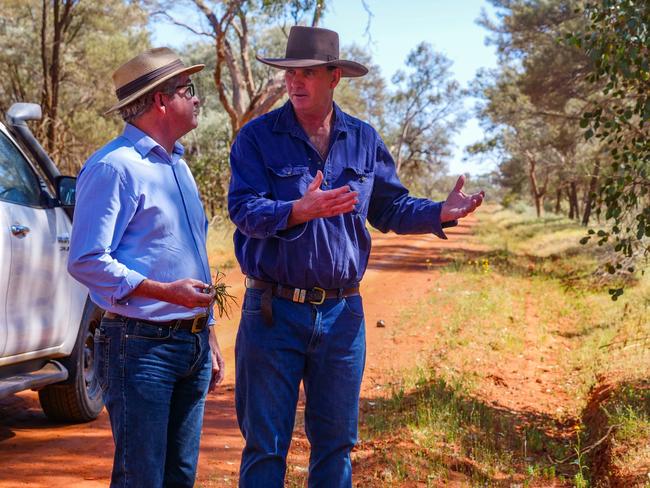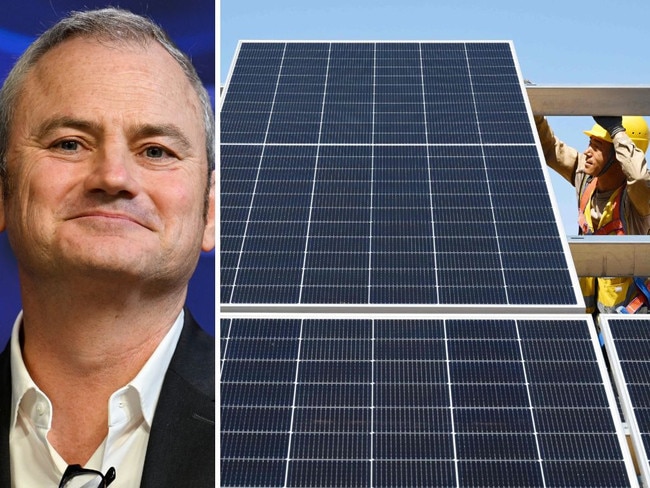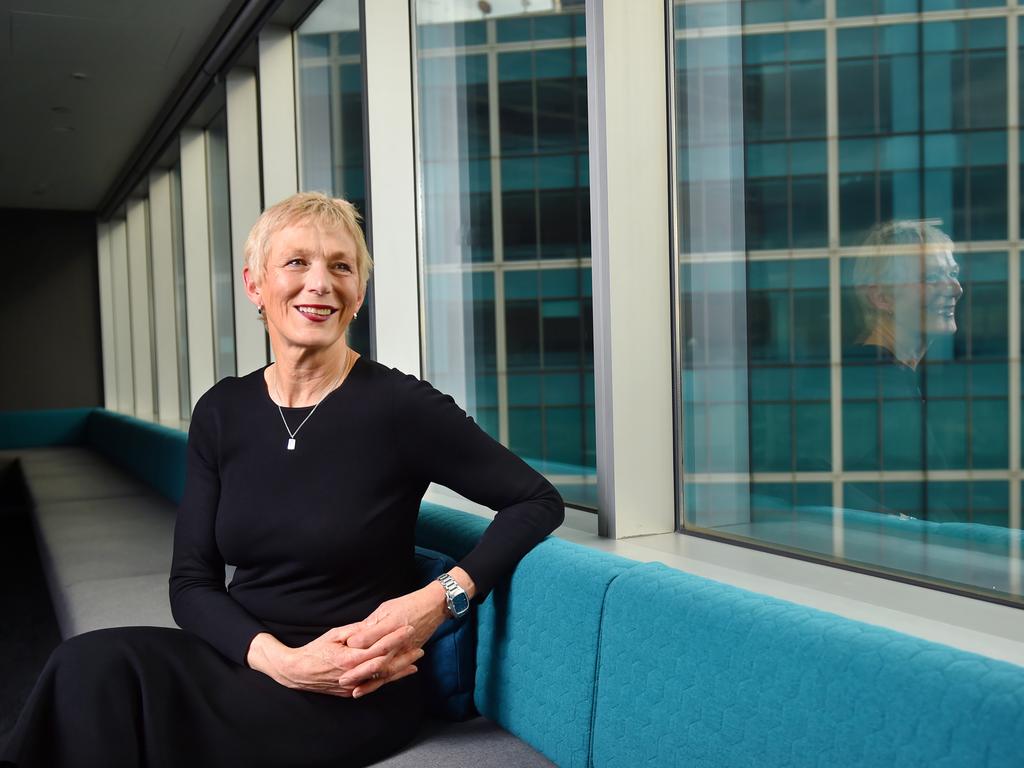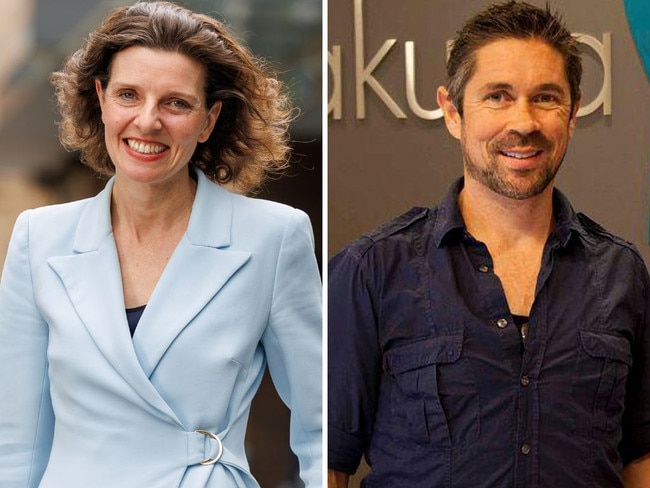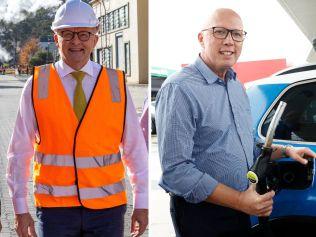Election 2025NationMillionaire activist and Climate 200 founder Simon Holmes à Court has launched a last-ditch plea for almost $1m cash in the final days of the campaign, with the futures of four teal independents hanging in the balance.
Common threadYou might consider it peculiar or even out of line to see an article connecting climate change and environmental pollution with health by a general practitioner, but GPs can no longer separate environmental conditions and human health.
newsNewsWireWith less than a week before Australia votes, the Greens have revealed a key demand Anthony Albanese will need to consider if he needs to form minority government.
Joseph Olbrycht-Palmer
Election 2025PoliticsAdam Bandt has unveiled the last of his key demands for Labor to secure the Greens’ support in a hung parliament.
LettersLettersThe first responsibility of a national government is the security of the nation. The Labor government has shown it is incapable of this and makes false promises of increased defence funding.
EditorialThe Australian Energy Market Commission has lifted the curtain on Labor’s renewables-only transition blueprint. It has warned that electricity system security risks are emerging faster than expected.
Editorial
Pope francisWorldAustralia’s ambassador to the Holy See, Keith Pitt, has warned visitors thinking of arriving for Pope Francis’ funeral and the conclave which elects the new Pope, that the inn is full.
LettersLettersPope Francis described climate change as a “profound moral crisis” and recognised its effects on humanity, especially disadvantaged people.
election 2025PoliticsWith just 10 days of campaigning left, the Goldstein MP Zoe Daniel is cashed-up and ready for a final advertising blitz after Simon Holmes a Court donated another $50,000 to her campaign.
Jack the InsiderLiberal corflutes, the climate emergency, battling the hate media and the death of one of the great social media influencers of our time: a week in the life of Dr Monique Ryan.
EnergyRenewable energy & economyWoodside’s board is in the firing line as CEO Meg O’Neill hopes for North West Shelf certainty ahead of another AGM marked by big police presence.
As we mark Earth Day, it’s tempting to believe the world is on the brink of environmental collapse. But this is misleading.
Bjorn Lomborg
US PoliticsThe US will dramatically reduce America’s diplomatic footprint and scrap offices dealing with climate change and human rights, according to a draft White House order.
Sebastian Smith
OPINIONThe Growth AgendaAs sustainability builds a more significant presence in the boardroom, marketers need to seize the moment to change the brief and adopt more responsible practices.
James Greet
EXCLUSIVEPoliticsThe ALP is being urged to cut ties with the Smart Energy Council following revelations the charity’s executives earn double that of managers in other climate-change organisations.
Election 2025NationA Climate 200-backed candidate in SA, Anita Kuss, has been accused of falsely implying to voters a Dutton government could withdraw support for the $2.4bn Whyalla steelworks rescue.
LettersLettersDiscussion in this week’s TV debate centred on social issues, including housing, immigration and climate change. But it will not help us if we are being coerced by adversaries on our doorstep.
WentworthPoliticsClimate 200 teal independent MP Allegra Spender is trailing her Liberal challenger on the primary vote in the Sydney seat of Wentworth, with security a big issue, according to new polling.
COVER STORYStageBallet Preljocaj’s radical new take on the fairytale classic features a wealthy industrialist hoping to drill the lake and a young woman who wants to protect the environment. How will audiences receive it?
CAMERON PEGG
INQUIRERInquirerIt’s not just the Greens and teal Climate 200 independents eating away at the Labor and Liberal vote – but also a threat from new players and a revival of some old ones.
JOURNEYSThe Weekend Australian MagazineConvict labour is to thank for building much of this bucolic town where today about a dozen vineyards produce some of Australia’s finest cool-climate wines.
Alistair Jones
EditorialCharities must stay away from slavery and funding political sides.
Editorial
MiningRenewable energy & economyFortescue has started work on one of the giant solar farms it needs to turn iron ore mines green and is forking out $350m for electric drill rigs.
CarbonRenewable energy & economyFrustrations are mounting over the federal government’s failure to modernise a carbon emissions scheme as new data shows a less than 2 per cent fall in annual emissions from our largest polluters.
EXCLUSIVENationThe Labor-linked Smart Energy Council, which counts Simon Holmes a Court as a senior adviser, has been receiving thousands of dollars from solar and battery firms black-listed in the US over concerns they use slave labour.
LAST POSTLettersWe will swallow tough medicine today for a brighter future, but we need a great leader to show the way.
Carbon creditsBusinessA growing number of high-profile companies, including the industry super fund-owned IFM Investors, are pulling out of Canberra’s net zero carbon emissions scheme.
tealsPoliticsInvestor Andrew Killion spent $500,000 on Climate 200 and Allegra Spender using an investment vehicle flush with shares in foreign companies.
Politics NowNationAnthony Albanese has backed Australians buying newspapers well into the future with funding to go towards the Tasmanian mill’s transformation to a low-emissions operation, as Peter Dutton continues to drill into voters the Coalition’s pledge to cut the cost of petrol.
AviationAviationFrustrated by the lack of progress in emissions-free air travel, Dick Smith is offering a valuable prize to the first person to fly an electric aircraft from England to Australia.
